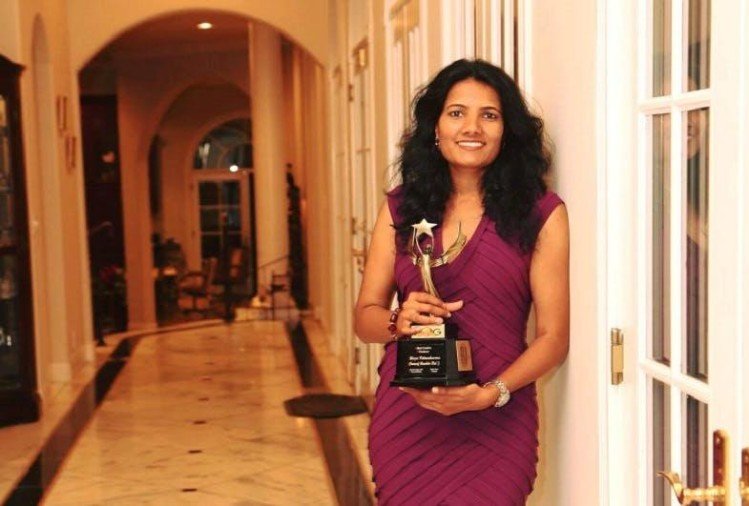
Maya Vishwakarma: The Padwoman of India
- Sukarma Foundation
- Maya Vishwakarma
- Enabling People to Help Themselves
Maya Vishwakarma is a remarkable woman who has worked tirelessly to dispel the superstitions surrounding menstruation. She is known as India's 'Padwoman,' and she has tirelessly fought against society's deep-rooted decision that devalues the existence of menstruation among women. Today, we’ll have a look at her story.
Maya was born and raised in the Madhya Pradesh village of Narsinghpur. Maya had to deal with several issues as a result of its isolated location, the majority of them revolved around women's hygiene. They also resorted to using cloth instead of sanitary pads. Maya realized how much information she was deprived of about her menstrual hygiene after she moved out of her town and visited cities. Be it her home or her school, Maya was rarely given information on a woman's hygiene because it was deemed taboo at the time.
Maya couldn't help but think how tough it would be for women who didn't have access to effective healthcare when she realized that many people were unaware of how important it is to distribute information about menstrual hygiene. Maya saw a significant contrast in how the topic of mensuration was handled in the United States vs India after migrating. Maya realized that basing her profession around medical research was also a noble endeavor. She then founded the 'Sukarma Foundation' in 2016, where she put up sanitary napkin manufacturing machines. In 2017, they labeled the pads 'No Tension,' which is a fitting moniker given that the pads are a quarter of the price of typical pads. Considering the fact that the main goal was to raise awareness, Maya embarked on a journey to cover 21 districts in Madhya Pradesh in order to establish a personal connection with the tribal people, their challenges, and their perspectives.
She and her brother went out and showed a clip in schools, connecting with girls and women there, During the time the movie ‘Padman’ was released and the media recognized Maya’s work and labeled her as the ‘Padwoman’ of India’. Maya's new name was given to her at this point.
Maya wanted to do something significant with her life instead of pursuing ‘the dream’ of working in a big city and making money. While working in Silicon Valley, Maya realized that if you wait until you have "enough" money to do anything altruistic, you rarely have any energy or time left. Maya chose satisfaction over a large sum of money, based on what she had experienced in the past and present. This was the turning point in her life. Despite the fact that she has the option to return to the United States and resume her profession at any time, Maya feels serenity and comfort in knowing that her efforts are helping countless girls enjoy a better and healthier life.
Maya has noticed a significant amount of change (in the previous 6 years) since she began this work and today. She claims that not only schools, women, and girls, it is also men that encourage her to educate and make them aware of women’s hygiene. Maya still resides in the village where she was born and raised, Maya has also adopted the village and guaranteed that it is on a continuous upward trajectory. Maya provided a box of 7 sanitary pads for 5 rupees. In her village, Males are now coming in to buy pads for their wives and daughters as a result of the changing times and awareness. Maya's aim of spreading awareness has benefited greatly from her physical presence; people have become more conscious in the various locations where Maya's foundation is physically present.
Maya was initially responsible for all of the work herself, and she was unable to find the necessary skilled personnel or persuade others that her organization was truly committed to change. Apart from that, Maya had to deal with a lack of support from others, as many people overlook charity and social aid.
Maya realized she required a solid foundation to work on a grassroots level in 2015, and she later considered collaborating with another non-profit located in Silicon Valley. The foundation is set to merge in a couple of years. The Sukarma Foundation was also at the forefront of helping the country cope with the Covid-19 outbreak, assisting people in remote areas who lacked access to doctors and medicines. They have established a teaching center to teach women the art of tailoring and other skills so that they can be self-sufficient and make their own money. They also hold medical camps and distribute medicine and other supplies to tribes and villages living in remote places.
Maya believes that because we only have so much time on this earth and so many expectations on our shoulders, it is critical to identify and pursue your passion. She points out that there have been some people who have lived lives filled with every conceivable luxury but still feel empty. Being born in this world is a gift, and we should make it a point to make our lives meaningful. It is also crucial to make sure you give back to the community.
